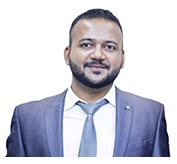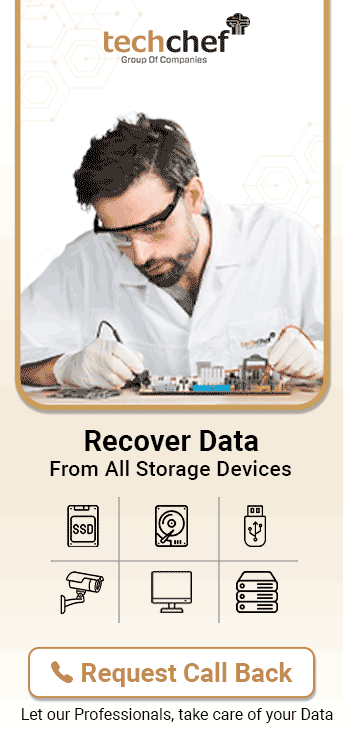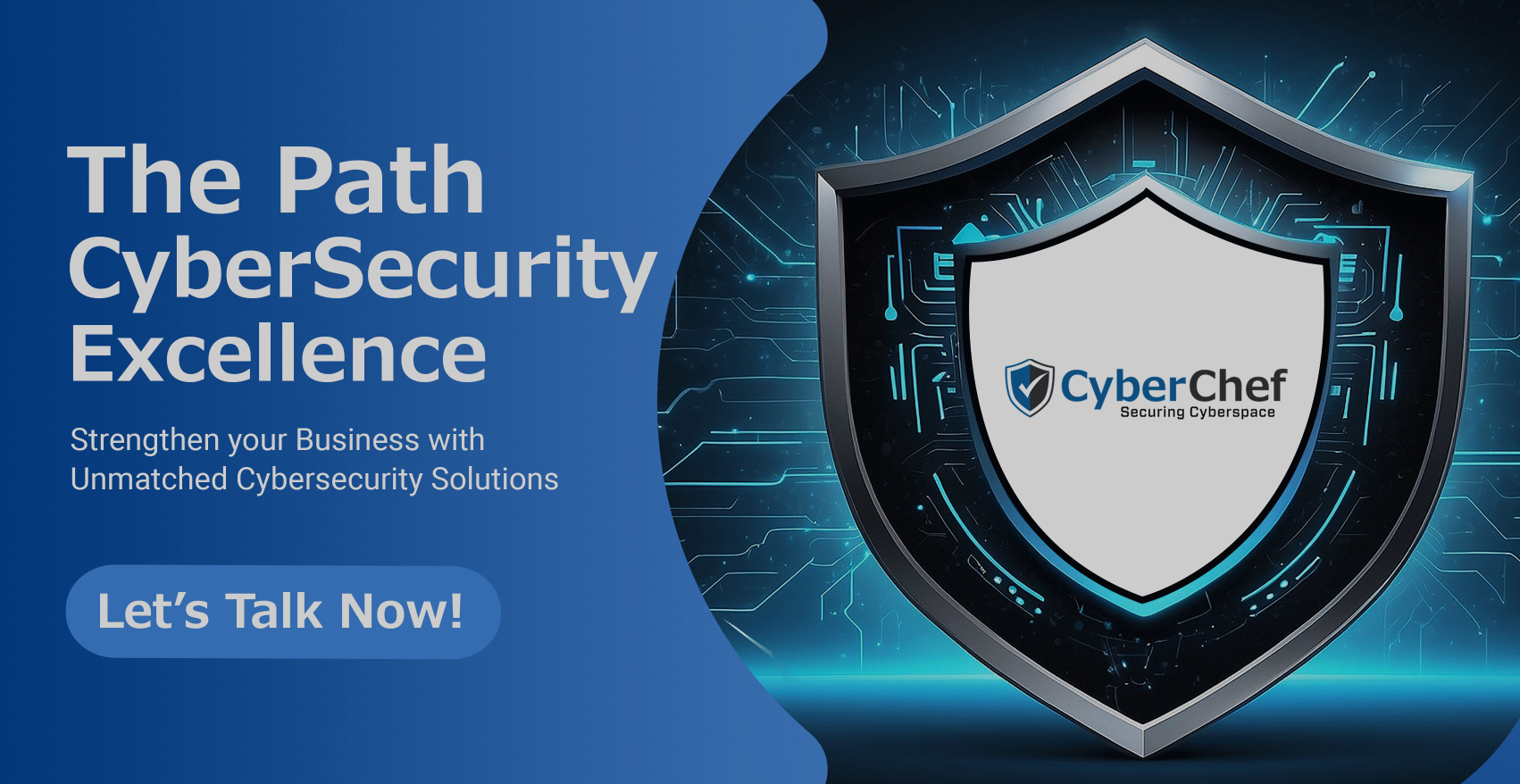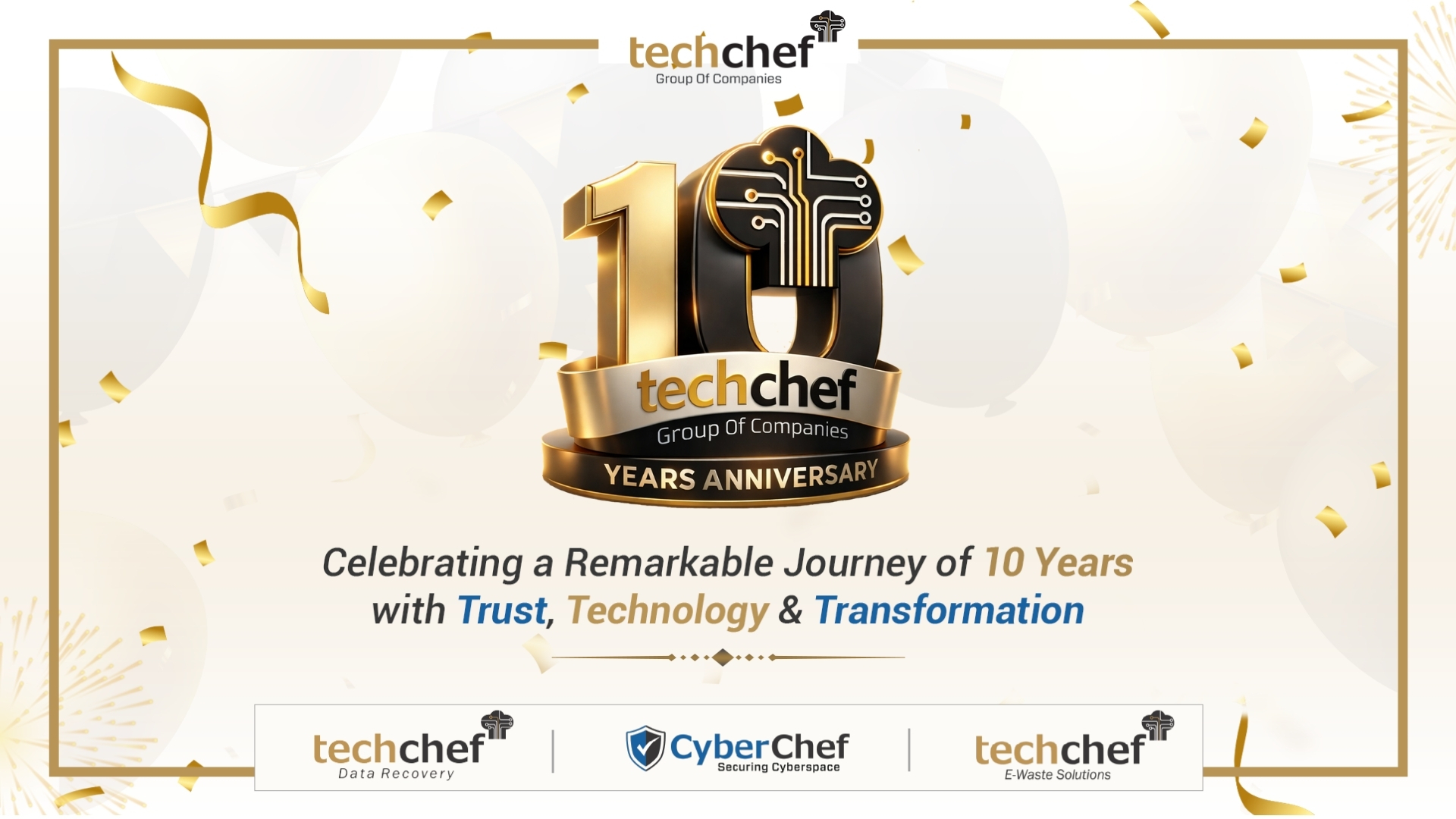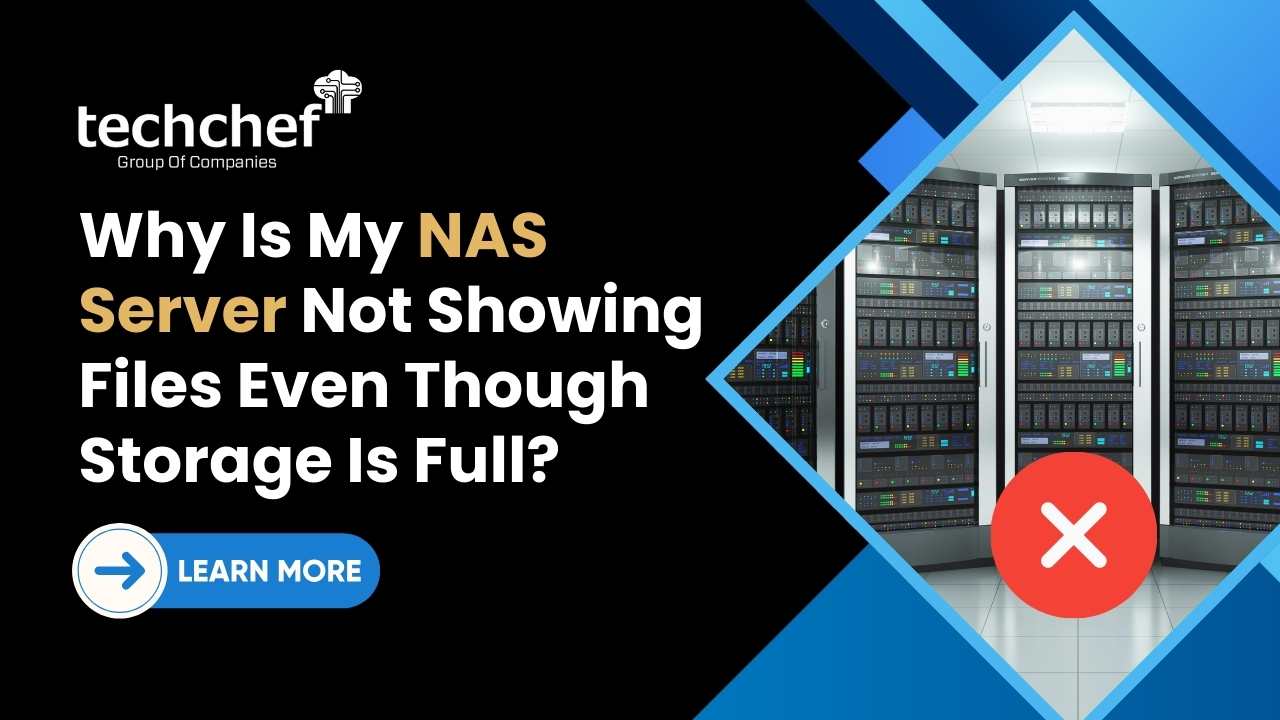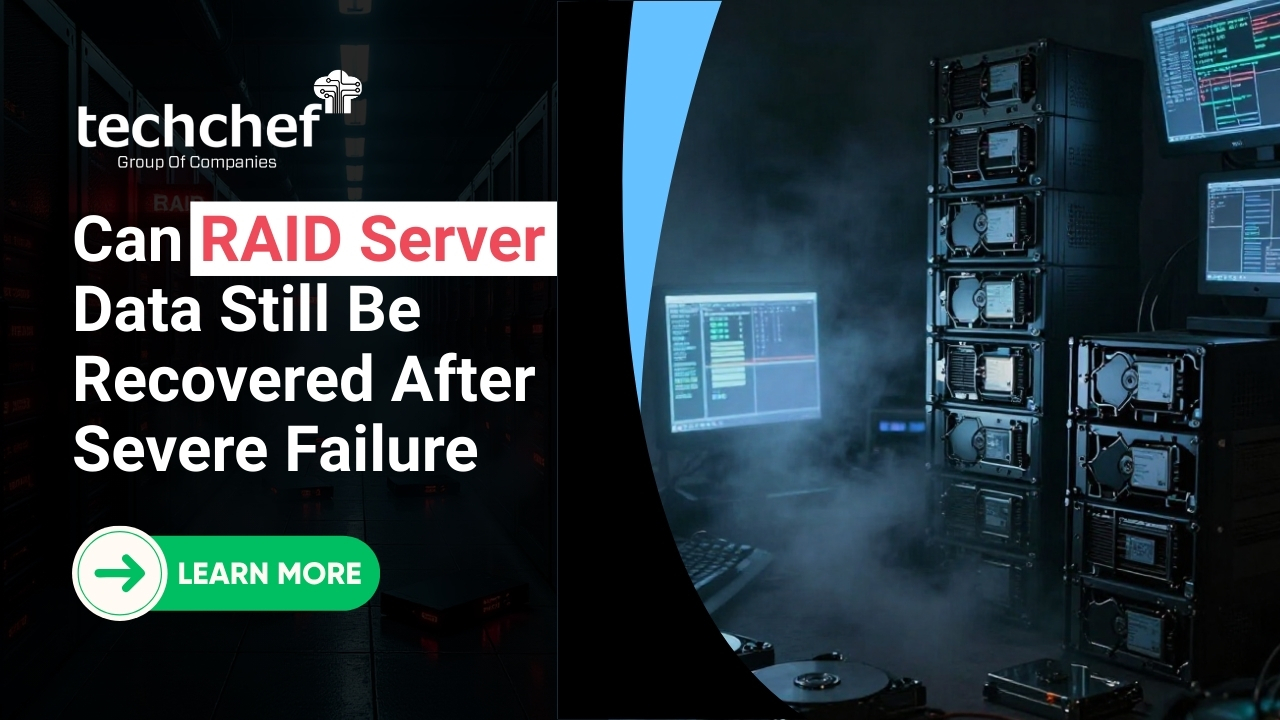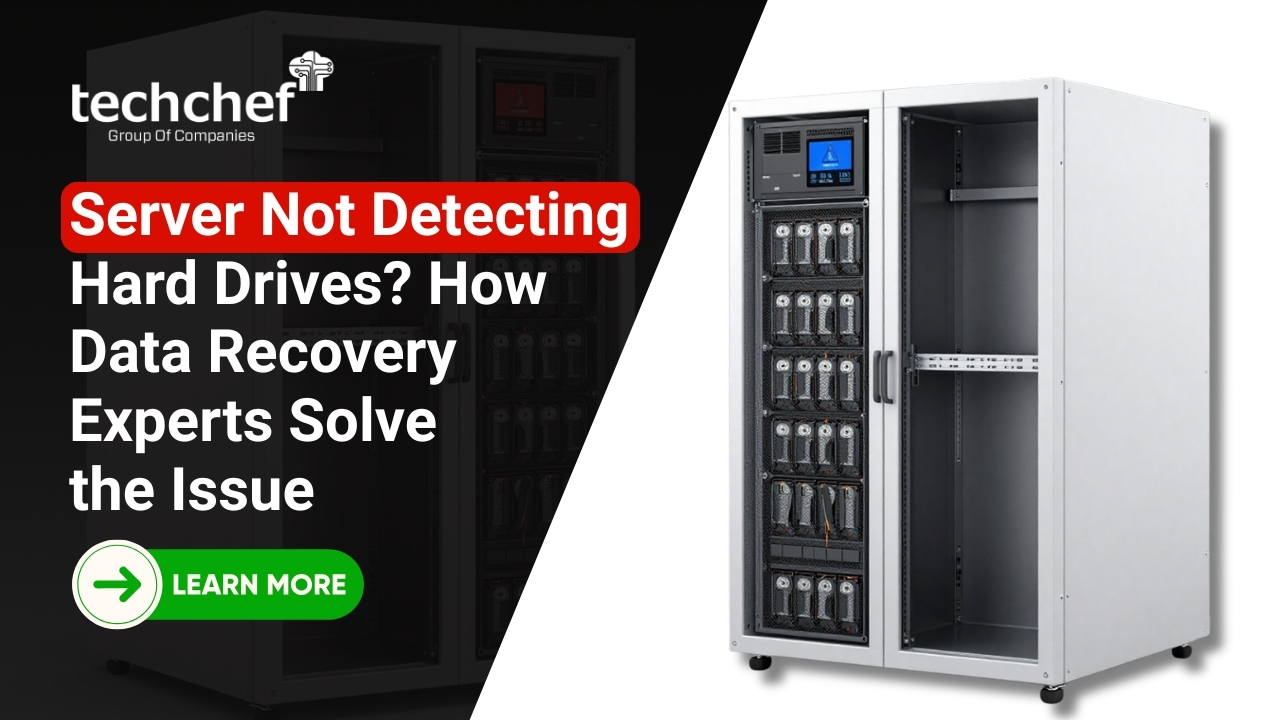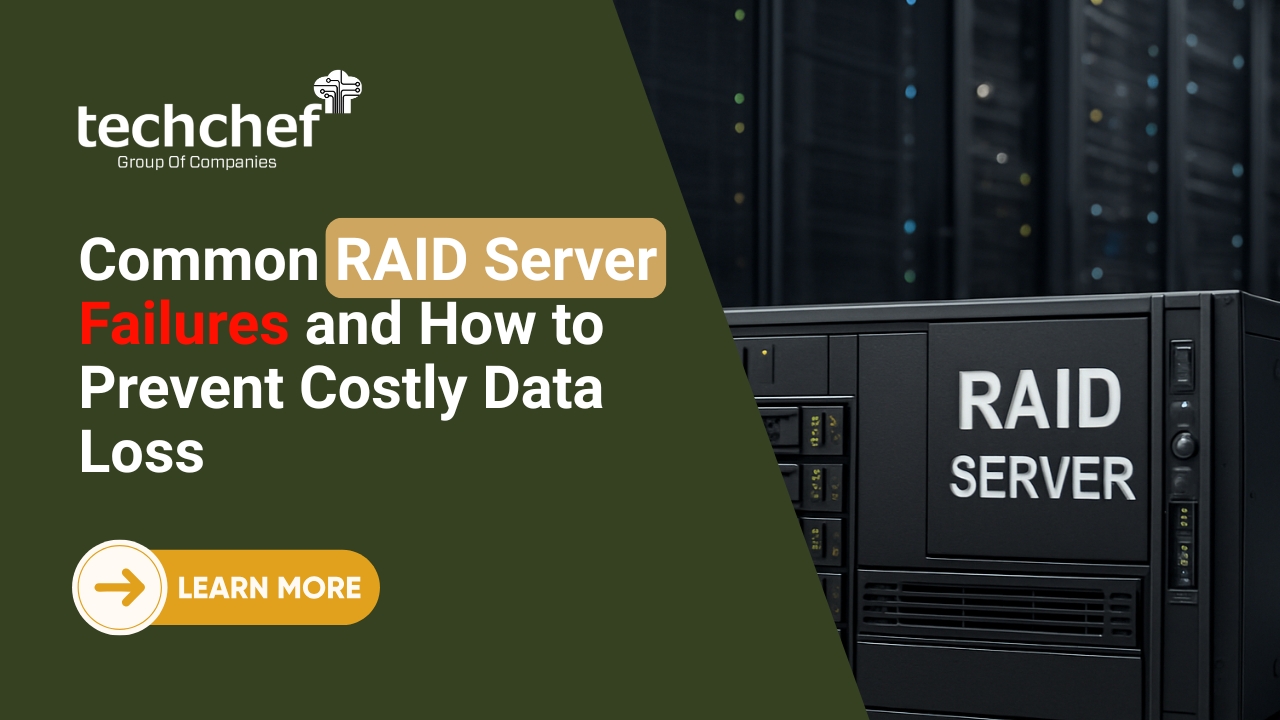If you’re reading this, you’ve probably heard a strange clicking noise coming from your hard drive (HDD) and are worried about what it means. Don’t panic just yet…. this blog will help you understand why it’s happening and, most importantly, how you can fix it and recover your data.
I’m Kritika, Technical Writer at Techchef Group, where I specialize in data recovery, and I know how scary it can be when your hard drive is in trouble. But the good news is that there’s usually something that can be done to save your data. Let’s walk through what that clicking sound is, why it happens, and how you can handle it.
🔊 What Is That Clicking Noise?
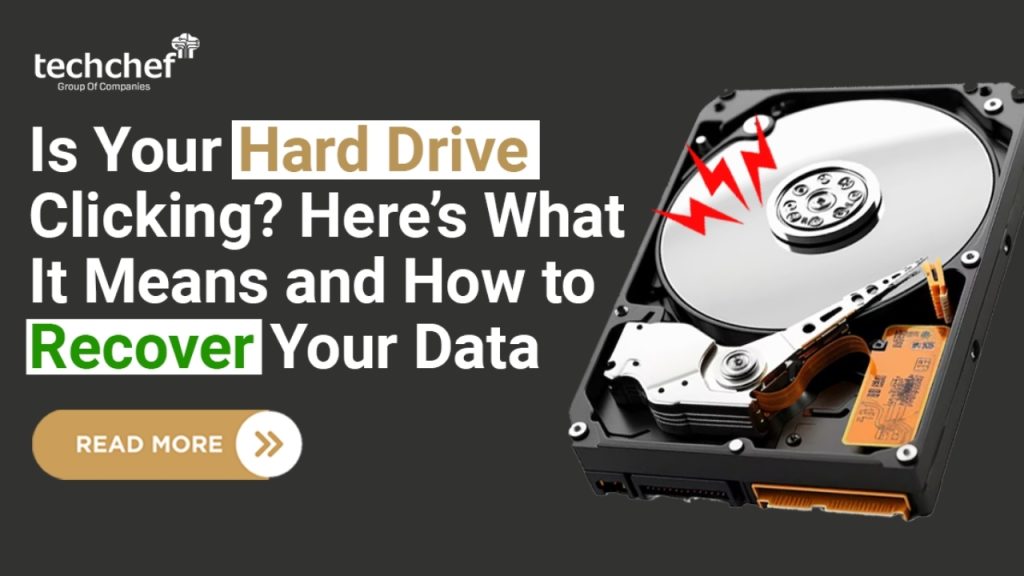
The clicking noise coming from your hard drive is often a signal that something’s not quite right inside. It could be something minor, but it might also indicate a serious problem. To make sure you understand what’s going on, let’s break it down in simple terms.
⚙️ What Causes the Clicking Noise?
When your hard drive clicks, it’s usually because the moving parts inside the drive are struggling. These parts include the read/write head that moves over the drive’s storage platters to read or write data. If something is wrong, the head will keep trying to move but will get stuck or fail to access the data, causing that clicking sound.
Here are a few reasons why this happens:
✅ Mechanical Problems: Over time, the moving parts inside the drive can wear out or break, causing issues with data access.
✅ Bad Sectors: Sometimes, parts of the drive get damaged. These are called bad sectors, and they can make it difficult for the drive to read the data.
✅ Power Problems: If the power supply to the hard drive is inconsistent, it can lead to errors and cause the drive to click.
✅ Firmware Issues: The firmware inside the drive controls its operations. If this software becomes corrupt, it might cause the clicking sound.
💡 Did You Know?
That clicking noise you hear is actually the hard drive’s read/write head trying to position itself. If the issue isn’t fixed soon, it could lead to serious data loss. But don’t worry…. there are ways to recover your data!
🤔 Should You Be Worried? Here’s What You Can Do
I know hearing a clicking noise from your hard drive can be alarming, but before you panic, there are a few things you should do. The goal is to stop the problem from getting worse while you figure out the best way to recover your files.
1️⃣ Don’t Panic – Stay Calm!
I’ve worked with many people who hear a clicking sound and immediately freak out. It’s completely normal to feel anxious, but staying calm is key to making sure the situation doesn’t get worse. Panicking can lead you to make rushed decisions that could endanger your data further.
2️⃣ Disconnect the Hard Drive
As soon as you notice the clicking noise, shut down your computer and disconnect the hard drive. This will stop further damage from happening and give you time to figure out your next steps. You don’t want to leave it running while it’s malfunctioning.
3️⃣ Avoid DIY Fixes
There are a lot of myths out there about fixing hard drives. Some people try things like tapping or even freezing their hard drives to make them work again. Trust me…. these methods don’t work and will likely make things worse. It’s best to avoid these DIY fixes unless you’re an expert in hardware repair.
4️⃣ Try Data Recovery Software
If the damage isn’t too severe, you can try data recovery software. These tools are designed to recover files from failing or damaged hard drives. Popular options include Recuva, EaseUS, and Disk Drill. These tools will scan your drive for files that are still recoverable but i strongly recommend to consult with Techchef before using and software
However, keep in mind that this method works best when the problem is minor. If the hard drive is seriously damaged, software might not be enough to fix the problem.
🛠️ How to Recover Your Data from a Clicking Hard Drive
Even though a clicking hard drive can be scary, there are ways to recover your data safely. The right approach depends on the level of damage your drive has sustained. Let’s go over the best options.
1️⃣ Professional Data Recovery Service
If the clicking sound is frequent or doesn’t go away, your hard drive may have serious issues. In these cases, the best option is to contact a professional data recovery service. Here at Techchef Group, we specialize in recovering data from failing hard drives.
Here’s what we do to recover your data:
✅ Initial Assessment: We examine your hard drive to determine the exact cause of the clicking sound.
✅ Cleanroom Recovery: If necessary, we open your hard drive in a cleanroom environment to prevent contamination from dust or other particles.
✅ Data Recovery Process: Using advanced tools and techniques, we retrieve your important files and restore them to a safe storage device.
Professional recovery services are the safest option if your hard drive is physically damaged, as trying to fix it yourself could result in irreversible data loss.
2️⃣ Using Data Recovery Software
If you’re dealing with a minor issue, using data recovery software can be a good first step. These tools allow you to recover your files before seeking professional help. Here’s how you can do it:
✅ Download and Install Software: Start by downloading data recovery software like Recuva, EaseUS, or Disk Drill onto a separate computer or drive. (Expert Consulting Required for such Software)
✅ Scan the Hard Drive: Connect the clicking hard drive to your computer and run the software. The tool will scan the drive to find recoverable files.
✅ Preview and Save Files: Once the scan is done, you can preview the recoverable files. Choose the files you want to restore and save them to a different storage device.
3️⃣ Cloning the Hard Drive
If the clicking sound persists, cloning the hard drive might help. Cloning involves creating a copy of the hard drive’s data onto another working drive. If your drive is still functional enough to copy data, this can help preserve your files and reduce further damage.
4️⃣ Hardware Repair (For Experienced Users)
If you have experience with hardware repairs, you might attempt to open the drive and fix the mechanical parts. However, this is risky, and if you’re not an expert, I highly recommend leaving this to the professionals.
🛡️ How to Prevent Clicking Noises in the Future
The best way to avoid a clicking hard drive in the future is to take good care of your data and hard drive. Here are some simple but effective tips:
1️⃣ Backup Your Data Regularly
Regular backups are your best defense against data loss. Use an external hard drive, cloud storage, or both to make sure your files are safe. Backing up your data at least once a week will protect you from losing important files.
2️⃣ Protect Your Hard Drive
To avoid physical damage, always handle your hard drive carefully. Keep it away from extreme temperatures, moisture, and strong magnetic fields. Also, avoid dropping it or exposing it to shocks, which could damage the internal components.
3️⃣ Monitor the Health of Your Hard Drive
You can use disk health monitoring software like CrystalDiskInfo to keep an eye on the health of your hard drive. This software checks for signs of wear and tear and alerts you if there are any issues that might cause a failure in the future.
4️⃣ Keep Your Software and Firmware Updated
Regularly updating the firmware and software of your hard drive can help prevent compatibility issues. Manufacturers often release updates that fix bugs and improve drive stability.
🧾 Conclusion
If you’re facing data loss issues or your hard drive has become inaccessible, don’t worry…. Techchef is here to help. We specialize in professional HDD, RAID, NAS, and storage device data recovery, ensuring your valuable data is handled with care and expertise.
At Techchef Group, we understand how crucial your data is to you, and we provide personalized solutions to get your files back safely. Whether your hard drive is clicking or your system is unresponsive, our team has the tools and experience to recover your data.
If you’d like to visit us for a free consultation, our data recovery experts are available to assist you in person.
📞 Call our toll-free number: 1800-313-1737 or reach out to schedule your visit today. Your data is important…. trust Techchef to recover it safely and securely.
